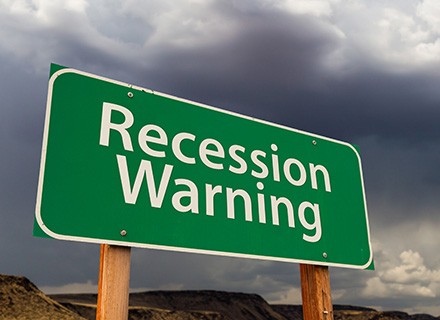The World Bank stated that policymakers in emerging markets and developing economies must be prepared to handle any potential spillovers from a worldwide synchronized tightening of policies.
According to a new World Bank analysis, the world may be heading into a worldwide recession in 2023 as central banks around the globe concurrently raise interest rates to control inflation. It also foresaw a series of financial crises that would permanently negatively impact emerging markets and developing economies.
A Reuters survey of economists indicated that the Federal Reserve would likely raise interest rates by another 75 basis points the following week. Nomura’s economists predict that the FOMC meeting on September 20–21 will likely result in a rate increase of 100 basis points.
The European Central Bank raised interest rates this week by 75 basis points and said it “expects to raise interest rates further because inflation remains much too high and is likely to stay above goal for an extended term.”
According to Governing Council member Gabriel Makhlouf, raising interest rates by the European Central Bank is “absolutely required.”
During an interaction with Bloomberg, Gabriel Makhlouf said, “A pivot to tighten further monetary policy has been necessary since history has taught us that these challenges will only worsen if we wait for action.”
Ayhan Kose, the acting vice president for equitable growth, finance, and institutions at the World Bank, stated that the recent tightening of monetary and fiscal policies “will probably prove helpful in decreasing inflation.”
“However, given how synchronized they are across nations, they may be mutually compounding to tighten financial conditions and exacerbate the slump in global GDP,” Ayhan Kose added.
According to Ayhan Kose, policymakers in emerging markets and developing countries must be prepared to handle any potential spillovers from tightening regulations across the board.
The World Bank warned that the projected trajectory of interest rate increases and other policy measures might not be enough to bring global inflation back down to pre-pandemic levels.
Nevertheless, investors anticipate central banks to hike international interest rates by more than two percentage points over their 2021 average through 2023, reaching almost 4%.
The global economy is severely dropping, and it will likely continue to slow as more nations experience recessions.
David Malpass, president of the World Bank Group, expressed his grave fear that these trends would continue and have terrible long-term effects on people in emerging markets and developing countries.
Ayhan Kose asserts that there is a small window of opportunity for the world economy to emerge from the crisis and maybe experience a smooth landing. But there are also compelling causes for concern.
There are two significant causes for concern about the potential for a worldwide recession. The first reason is that you can observe signs of weakening in the global economy before major global recessions. Recent activity indicators show that the level of global output has rapidly decreased.
In fact, Ayhan Kose noted, “The current slowdown in activity is the greatest we have observed before any previous global recession.”
The United States, the Euro area, and China are, of course, the main engines of the global economy, and when you look at the economies since the beginning of the year, you see that they have been slowing and, in some cases, slowing sharply, Ayhan Kose continued.
The second important reason [is] that when you have a global recession, you see broad-based weakness in those economies.
World Bank Group President Malpass said, “Policymakers might shift their focus from cutting consumption to growing production to achieve low inflation rates, currency stability, and quicker growth.”
In addition, policies should work to increase capital allocation, productivity, and investment To promote growth and eradicate poverty.
The World Bank highlighted that various policy engines, such as central banks, fiscal authorities, and other economic policymakers, should collaborate to combat inflation.
Clear communication of policy choices is required while central banks maintain their independence. This may serve to stabilize inflation expectations and lessen the amount of tightening required.
The removal of financial assistance measures must be calibrated carefully by fiscal authorities while maintaining conformity with monetary policy goals.
Other economic decision-makers will need to join the effort to combat inflation by developing policy strategies that will assist expand labour force participation, ease price pressures, increase the world’s supply of commodities, and fortify international trade networks.

